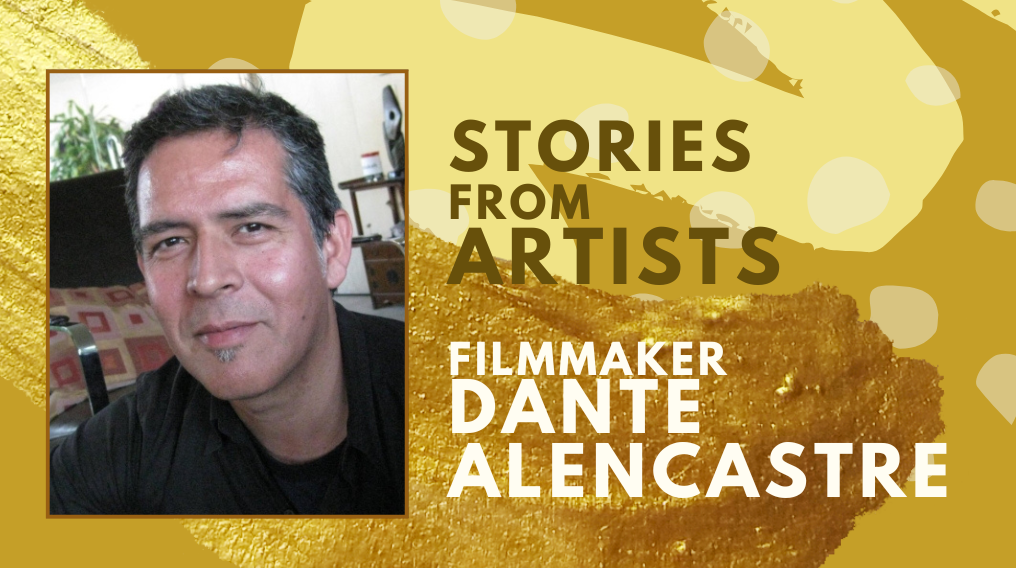
Interview with Filmmaker Dante Alencastre
Connie Norman was a trans activist who gave voice to the AIDS and LGBTQ community as part of ACT UP/LA in early ‘90s Los Angeles. Dante Alencastre, director and co-producer of AIDS Diva: The Legend of Connie Norman, reminded FAM Board Member Sherri Lewis that they first met about 14 years ago at Outfest. This was their conversation in September 2021:
Sherri Lewis: So, Dante, what attracted you to trans women and their HIV stories? This isn’t your first.
Dante Alencastre: In Peru, my home country, gay men were in the closet but trans women – even though they were in danger of getting beat up or worse – were open to talking. I wanted to tell their stories. This movie is about Connie, not just her activism.
SL: So, this movie tells her personal journey.
DA: Yes. Connie transitioned in the ’70s, and by the ’80s was married to a gay man, Bruce Norman. They had an open marriage. He was well known in AA and a big fan of Louise Haye, though Connie wasn’t.
They had a beautiful place in Altadena. That’s where they entertained, especially for the holidays for trans people who needed family. Bruce was an interior designer to the stars: Suzanne Pleshett, Larry King, and people like that, and he did well enough so Connie could do her activism.
SL: How did they meet?
DA: Connie began transitioning in the ‘70s. She was always sissy — and teased and abused because of it. She ran away from home in Texas at 14 and ended up in San Francisco. By the ‘80s she met Bruce Norman at a bath house. Connie was really down on her luck from too many drugs. Bruce wanted to rescue her and proposed. Anecdotally, it was said that she laughed at his proposal.
“What this nelly fag wants to marry me!”
Connie really wanted to be a suburban housewife in Altadena. They were soulmates. Bruce saved her from the streets and drugs when he proposed to her. He threw her a lifeline.
SL: What changed her into becoming an activist?
DA: Her seroconversion is what changed her from housewife to activist. She became radicalized. She joined ACT UP/LA after she saw them at LA Pride. They became her family until the end of her life. In that nine to ten years, she did a lot.
They said women didn’t get AIDS in 1987! She wanted to start a support group at UCLA facilitated by Dena Rosen. She thought it would be all trans women, junkies … but instead, surprisingly, a group of suburban straight women showed up.
She was very pioneering using the media at the time at the Gay and Lesbian Center. She had her own cable show out of Long Beach, a radio show, and wrote a bi-weekly column in the LGBT newspaper Update from San Diego for about five or six years. That’s how she interacted with her readers.
The film focuses on nine-ten years of her life. She loved being part of policy and was part of the lobby in Sacramento instructing in how to deal with Trans AIDS patients. At that time it was very stigmatized, both having AIDS and being Trans.
She learned the legal language to make a difference. She barely finished high school, but she was like a sponge when she wanted to learn something like policy.
There were two things that were important to the team while telling Connie’s story:
First: To chart her gender journey starting as hetero-normative and binary. If she was not a gay man, what was she?
Second: It’s a film that’s a blueprint to anyone who wants to become an activist. If you really want to make a change you can. She turned her whole life around to be able to make a change for her community. In spite of her failing health, she just kept working, not just a number, organizing everybody.
Anybody can make a difference, you just have to do the work. And that’s what Connie was all about.
SL: Thank you, Dante. I look forward to seeing your movie in release!
* * * * * *
Connie Norman died in 1996 at age 47. Click here to read her Los Angeles Times obituary. Click here to listen to Peter Cashman’s story about Connie Norman.
Sherri Lewis is a FAM Board Member and AIDS activist. She writes for The Body, Arts & Understanding magazine and POZ magazine.